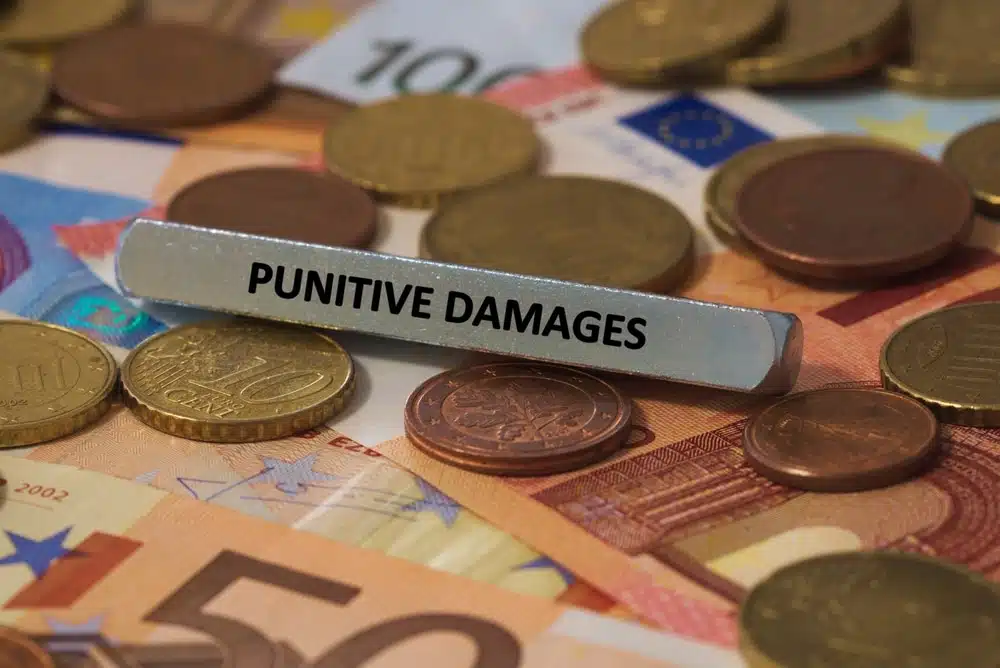
If you or someone that you care for has been injured in North Carolina, you may have a claim for punitive damages under certain circumstances. The Bishop Law Firm represents personal injury clients in Raleigh, NC and surrounding areas.
We do not get paid unless you win and we offer free case reviews. Start your free case review now.
North Carolina Personal Injury Law
In North Carolina, anyone who is injured due to the negligence of another through no fault of their own can potentially have a personal injury case in North Carolina. NC is a contributory negligence state, meaning if the injured person is even 1% at fault, they cannot recover under personal injury law (but see Last Clear Chance Doctrine).
In addition to contributory negligence as a bar, there are other circumstances under which a victim may not be able to recover from the at-fault party: if the at-fault party cannot be found (hit and run accidents); the at-fault party or property owner is a government entity (governmental immunity) or if the at-fault party has no insurance or assets to compensate plaintiff.
Withstanding the above, an injured victim can recover the cost of their medical bills (as well as future medical expenses), lost wages and for their pain & suffering. In certain circumstances, a victim can also recover punitive damages.
Also read: Medical Bills After Car Accident; Lost Wages and Earning Capacity and Pain & Suffering?
What are North Carolina Punitive Damages?
According to Chapter 1D, Punitive Damages may be awarded to punish a defendant for egregiously wrongful acts and to deter the defendant and others from committing similar wrongful acts.
The statute goes further to say that one of the following aggravating factors must be present: fraud, malice, or willful or wanton conduct.
Fraud is intentional acts of deception, theft or coercion. Malice entails a sense of ill will toward the plaintiff that incited the defendant to perform the act.
As discussed by the North Carolina Supreme Court, negligence is a failure to use care while wantonness connotes intentional wrongdoing. "Where malicious or willful injury is not involved, wanton conduct must be alleged and shown to warrant the recovery of punitive damages. Conduct is wanton when in conscious and intentional disregard of and indifference to the rights and safety of others.
The North Carolina Punitive Damages cap ceilings punitive damages at three times the amount of compensatory damages or $250,000 (whichever is greater) and the jury will determine the amount of punitive damages separately from the compensation for all other damages (medical bills, lost wages, pain & suffering).
So, punitive damages are awarded in addition to other damages involved due to the egregiously wrongful acts of the defendant that go a step beyond simple negligence (gross negligence). Usually in our firm's personal injury cases, fraud and malice are rare, however, willful or wanton conduct appears more frequently.
When can a victim attain punitive damages in North Carolina Personal Injury Cases?
As discussed above, fraud, malice, or willful or wanton conduct are needed. Simply driving distracted and causing a car accident will not suffice. The defendant's actions must go beyond ordinary negligence.
In order to attain punitive damages under North Carolina law, a victim must allege that they are entitled to them with the court (usually in the complaint) in addition to the recovery requested for the actual damages suffered. But, simply alleging that you are entitled to punitive damages will not carry the day.
Many defense attorneys will disagree that punitive damages are warranted no matter how egregious their client's actions are and ask the court to dismiss your claim for punitive damages. In anticipation of this, the facts of the case should be carefully examined before claiming punitive damages and the language used in your complaint should be pristine.
In addition, the court may award attorney fees to defendant for having to defend a frivolous or malicious claim for punitive damages.
The victim should be able to establish at least a "prima facie" case of punitive damages in order to get the claim to the jury. Prima facie means evidence sufficient to present the issue of punitive damages to the jury.
In the past North Carolina courts have awarded punitive damages to victims in cases involving intoxicated at-fault drivers, driving at excessive speeds or if the defendant was engaged in a racing competition. However, this is not an exhaustive list.
Similar past conduct and "road rage" should also be considered as potential justifications for requesting punitive damages.
NC has defined "road rage" as aggressive driving at 20.141.6.
"any person who operates a motor vehicle on a street, highway, or public vehicular area is guilty of aggressive driving if the person:
-
Violates 20-141 or GS 20-141.1 and
-
Drives carelessly and heedlessly in willful and wanton disregard for the rights or safety of others (Two of the below are required to meet this prong):
-
running through a red light
-
running through a stop sign
-
failing to yield right of way
-
following too closely"
-
Some questions to consider when determining if you have a prima facie case for punitive damages:
- Do you have evidence demonstrating conduct that was fraudulent, malicious, willful or wanton? For example, do you have evidence demonstrating that the defendant was intoxicated or intentionally tried to harm you?
- Does the police report or accident report discuss actions that would bump the case beyond ordinary negligence? Fleeing the scene of an accident itself does not rise to the level of willful or wanton behavior necessary to meet your prima facie burden, but what if the defendant crashed into your car twice, while shouting threats, and waived a gun at you before fleeing? The hit and run just turned into a near-death experience which could rise to the level of entitling the victim to punitive damages.
- Are the actions of the defendant detrimental to society as a whole? Intentional actions that disregard human life should be discouraged for the benefit of society as a whole. Driving under the influence of medications that impair your ability to drive or continuing to drive when a doctor has specifically ordered you not to drive may rise to the level of punitive damages.
The decision to add punitive damages to a complaint can be complicated. The behavior of the at-fault party may be egregious to you but the court may find that they do not rise to the level of punitive damages. Every case is different.
North Carolina Personal Injury Lawyer for Punitive Damages?
A North Carolina Personal Injury Lawyer can help you add punitive damages to your complaint and file it in the appropriate NC county court. They can also help you withstand motions to have punitive damages struck from your court case. While punitive damages can be hard to attain as they are evaluated on a clear and convincing evidence standard, they are available to those who have suffered injury from the willful and wanton conduct of the at-fault party.
Our firm offers free case reviews and no fee unless you win. Call us today or start your free case review now.
Also read North Carolina Personal Injury Lawyers; North Carolina Car Accident Lawyer

